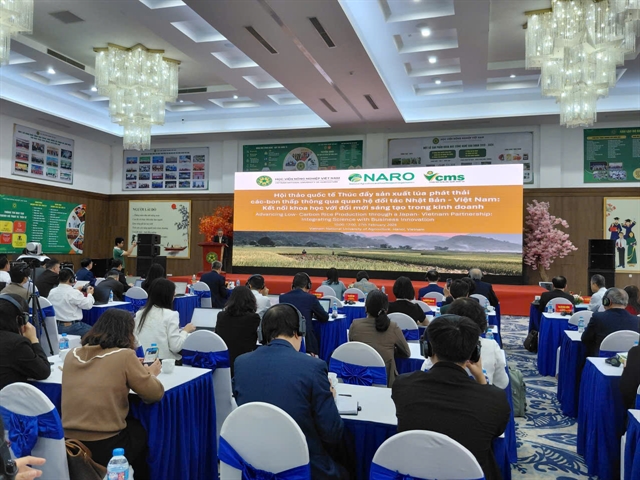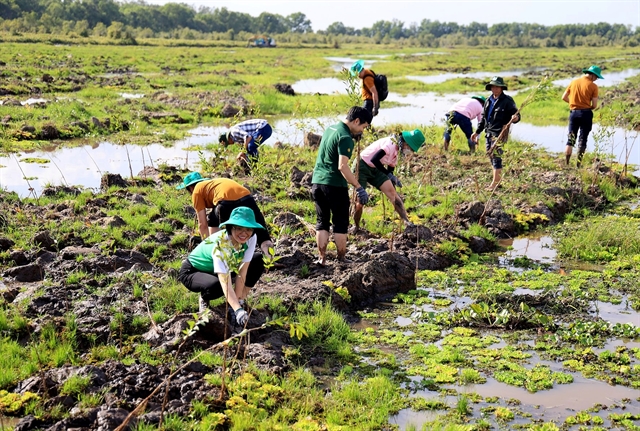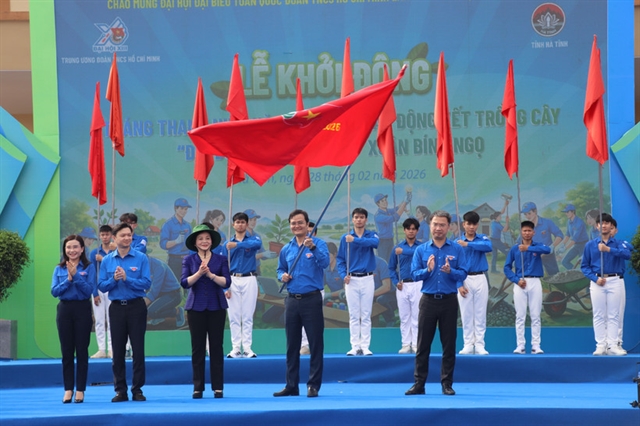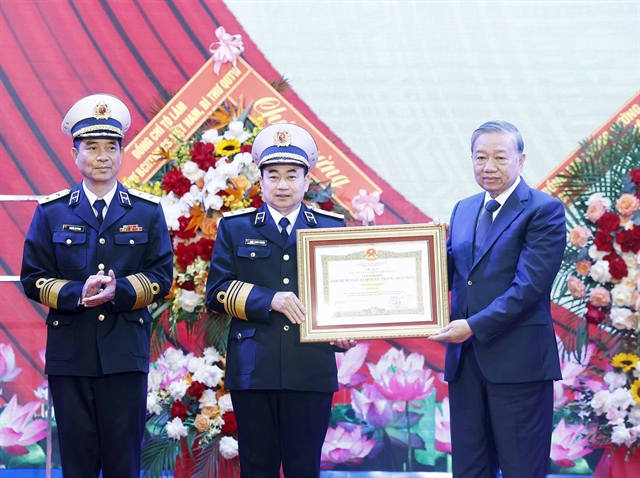 Environment
Environment

 |
| The project aims to plant 340,000 water melaleuca trees on 17 hectares to regenerate part of the dead Melaleuca tree area, stabilise the land, restore habitats, and provide protection against storms and extreme winds. Photo courtesy of the PAN Group |
LONG AN - A workshop to introduce a project on special-use forest plantation in the Láng Sen Wetland Reserve was held by The PAN Group and C.P. Vietnam and IUCN on December 22 in Long An Province.
The project is within the framework of a two-year cooperation agreement between the three parties, implemented from December 2022 to December 2024. The purpose is to increase the coverage of the Melaleuca forest, create habitats for water birds, improve the living environment of aquatic species, and support the plan of the People's Committee of Long An Province to plant special-use and border protection forests in the province during the 2021-25 period.
Láng Sen Wetland Reserve consists of a core zone (1,971 ha) located in the wetlands of the Plain of Reeds and belongs to Vĩnh Lợi, Vĩnh Đại and Vĩnh Châu communes of Tân Hưng District, Long An Province. Láng Sen is recognised as the 7th out of 9 Ramsar sites in Việt Nam under the Ramsar Convention.
It is one of the few remaining natural inland wetlands in the Mekong Delta with different types of geomorphology, creating an extremely diverse and rich wetland ecosystem. With more than 5,000ha of Melaleuca forests, islets, swamps, rivers, and grasslands, Láng Sen is home to 150 species of seasonally inundated vegetation, 148 water-birds species, including the globally threatened sarus crane listed in the World's Red Book and many other rare species.
However, the survey conducted in 2021 shows that the area of special-use forest has decreased by 139.21 hectares compared to 2014, posing an urgent need for the protection and restoration of this natural morphology.
The project aims to plant 340,000 water melaleuca trees on 17 hectares to regenerate part of the dead Melaleuca tree area, stabilize the land, restore habitats, and provide protection against storms and extreme winds. For long-term benefits, the projects will significantly contribute to floodplain habitat restoration for wild animals and plants, biodiversity promotion in the reserve and human habitat protection against natural disasters.
A Ramsar Site is a wetland that meets the criteria of the Ramsar Convention for the conservation and rational and appropriate utilisation of wetlands of international importance. Ramsar sites have been identified among the most effective ecosystem supporters on Earth.
Sharing about the project, Nguyễn Thị Trà My, CEO of The PAN Group, said: "Within the Action Plan to 2030, Life From Forestry is a programme of importance, implemented to plant one million trees, aiming at vegetation coverage increase, the Earth's environment protection and livelihood opportunity creation for the local. More specifically, projects expanding the area of special-use forests, reducing the impacts of natural disasters, and maintaining indigenous ecosystems like the one at Láng Sen Wetland Reserve are prioritized by The PAN Group. An abundance of work still needs to be completed, which takes a lot of time and perseverance to regenerate and restore damaged habitats, but if we don't take action today, the results won't come by tomorrow. As the first enterprise to plant special-use forests in Láng Sen Wetland Reserve, PAN hopes to receive responses and encourage more businesses to join hands to fulfil our responsibilities to the community."
Speaking at the project’s introduction, representatives of Long An Department of Agriculture, the reserve and stakeholders highly appreciated the project’s idea and the participation of The PAN Group, C.P. Vietnam and IUCN to preserve the natural environment in general and Láng Sen in particular. IUCN said that The PAN Group and C.P. Vietnam were the first enterprises to plant special-use forests within the framework of its business cooperation programme. The participants expressed their expectation that this would become a typical model that could be replicated. They undertook further activities such as carbon emission reduction assessment and carbon credits to fulfil the commitment to net zero emissions by 2050, made by the Prime Minister.
Participants from The PAN Group were its member companies in the agricultural sector, namely Aquatex Ben Tre (in the pangasius industry), Lafooco (in the cashew industry), Sao Ta (in the shrimp industry) and VFC (in the agrochemical and fumigation industries).
Speaking at the workshop, a representative of the group said: “PAN hopes to contribute to the conservation and preservation of Việt Nam's 7th Ramsar site, increasing tree coverage, combating climate change, reducing CO2 emissions and encouraging other businesses to join hands to protect the living environment and maintain a balanced ecosystem.”
The project called "Special-use forest plantation in the Láng Sen Wetland Reserve" is a key component of The PAN Group's project named "Life from forestry" implemented in 2020, whose goal is to plant 1 million trees within ten years, of which 378,330 trees on about 1300 hectares have been grown. The PAN Group and member companies fund the project in its ecosystem.




